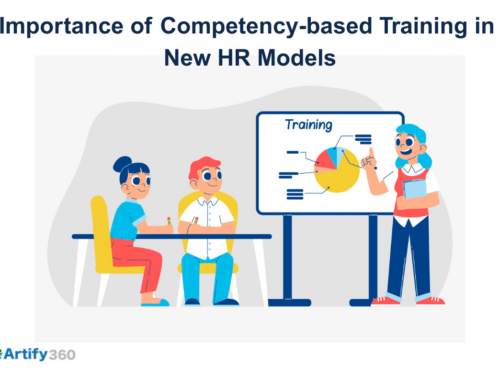Maintaining a continuous and efficient workforce is paramount in the fast-paced realm of healthcare, where patient care is a 24/7 commitment. The seamless operation of medical facilities relies on the availability of dedicated healthcare professionals around the clock. To tackle the unique staffing challenges faced by the healthcare sector, the integration of technology has emerged as a game-changer.
This article delves into the pivotal role of the attendance module in Bahrain HR software within the healthcare industry. By ensuring optimal staffing levels, streamlining shift management, and providing real-time insights, this module stands as a linchpin in delivering quality patient care while supporting the well-being of healthcare professionals.
Unique challenges of staffing in the healthcare sector
Healthcare operations are characterized by their constant demand for staffing, as medical facilities must operate around the clock to provide patient care. From nurses and doctors to support staff, the healthcare workforce must always be available to attend to patient needs.
Staffing shortages in healthcare can lead to dire consequences, jeopardizing patient safety and the quality of care. The absence of even a single team member can create staffing gaps that are challenging to fill quickly, potentially leading to increased patient wait times and compromised medical attention.
Role of attendance module in HR software
The attendance module, a feature within Bahrain’s top HR software, is a sophisticated tool designed to tackle attendance tracking digitally and efficiently. Unlike traditional methods that often involve manual data entry and are prone to errors, the attendance module offers a comprehensive solution to track and manage staff attendance digitally. This module is tailored to address the complex demands of round-the-clock staffing in the healthcare sector, ensuring that medical facilities are adequately staffed.
Ensuring continuous patient care
One of the core functions of the attendance module is facilitating seamless shift scheduling. In healthcare settings, where different medical professionals work shifts to ensure continuous patient care, efficient shift management is crucial.
The attendance module assists in creating and maintaining schedules, reducing the chances of scheduling conflicts or understaffing during critical hours. Additionally, the real-time attendance tracking feature of the module enables managers to immediately identify any gaps in staffing and take prompt action to mitigate them.
Dynamic shift management
Managing shifts in a healthcare environment can be complex due to the varying requirements of different departments and the need for specialized skills at specific times. The attendance module simplifies this process by streamlining shift allocation and swaps.
Healthcare professionals can request shift changes or swaps through the module, making it easier for managers to find replacements and ensure that all shifts are adequately staffed.
Overtime and on-call management
Healthcare professionals often work overtime or must be on call to address emergencies. The attendance module plays a crucial role in managing these aspects of staffing. It accurately tracks overtime hours, ensuring employees are properly compensated for their extra efforts. Moreover, the module helps manage on-call shifts, ensuring the right personnel can respond to urgent medical situations.
Ensuring compliance with labor laws
Adhering to labor laws and regulations is paramount in any sector, and healthcare is no exception. Bahrain HR software aids healthcare facilities in tracking and managing work hours to ensure compliance with labor laws. This is particularly critical to avoid legal issues that can arise from non-compliance.
Real-time visibility for managers
The attendance module provides managers with real-time attendance data, offering insights into staff availability. This visibility is invaluable in making informed staffing decisions. Managers can quickly identify who is present and available to respond to emergencies or urgent patient needs. Real-time data also helps managers allocate tasks and responsibilities more efficiently.
Employee self-service and remote access
Employee self-service is a feature in HR software in Bahrain that empowers healthcare professionals to manage their attendance and shifts. Healthcare staff can request time off, view their schedules, and even swap shifts with colleagues through the attendance module. This self-service capability is especially advantageous in a sector where schedules change rapidly, and employees may need to adjust their availability from remote locations.
Ensuring fairness in shift distribution
Achieving fairness in shift distribution among healthcare workers is vital for maintaining employee satisfaction and preventing burnout. Bahrain’s top HR software plays a role in ensuring the equitable distribution of shifts. The module minimizes the potential for favoritism and bias by automating the allocation process, thereby promoting a healthier and more harmonious work environment.
Reducing administrative burden
The manual tracking of attendance and shifts is time-consuming and prone to errors. The administrative burden of these tasks can detract from the core focus of healthcare professionals: patient care. The attendance module automates attendance recording and reporting, freeing up valuable time for healthcare workers to focus on their patients and their well-being.
Final thoughts
The role of the attendance module in Artify360 HR software in ensuring 24/7 staffing and patient care within the healthcare sector cannot be overstated. The module plays a crucial part in maintaining continuous patient care and safeguarding employee well-being by automating attendance tracking, facilitating shift management, and providing real-time insights.
As healthcare environments continue to evolve, the technology-driven solutions provided by Artify360 HR software will remain essential in meeting the demands of this critical sector. By deploying advanced tools like the attendance module, healthcare facilities can optimize staffing operations, ensuring patients receive the care they need whenever needed.






